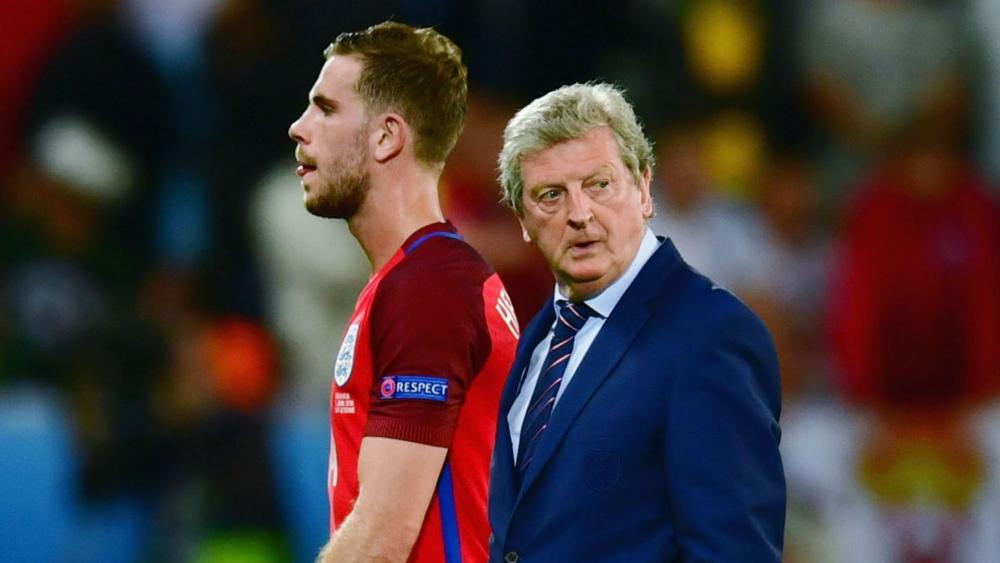Tactical Rubik's Cube has Hodgson flummoxed
England were dominant but toothless against Slovakia, as Roy Hodgson's selection and tactics failed to convince again.

Roy Hodgson will continue wrestling with the red and white Rubik's Cube of team selection and tactics at Euro 2016 after England's frustrating 0-0 draw with Slovakia in Saint-Etienne on Monday.
To be damned if you do and damned if you do not is the fate that befalls every England manager in every game from the start of their tenure to - unless they achieve the impossible and emulate Alf Ramsey - its inevitably disappointing conclusion.
It was no different for Hodgson at Stade Geoffroy-Guichard when, in a bid to give playing time to some of his squad and a rest to others, the coach shuffled his pack extensively.
The result was a predictable, familiar 0-0 draw that allowed Wales to claim top spot in Group B and left England at risk of a potentially difficult tie against the runners-up of Group F, containing Hungary, Portugal, Iceland and Austria, in the knockout stages.
Perhaps, his team having utterly dominated a Slovakia side chronically lacking in ambition, Hodgson will be afforded some leeway by the press and the public for the failure to win.
The spectre of the 1998 World Cup, when England bowed out against Argentina at the same venue in the round of 16 after failing to win their group, will now loom large, but the manager will insist his widespread tinkering had merit.
Having been asked to get through a mountain of work as the primary sources of their team's width at the tournament, there was a case to be made to leave out the in-form Danny Rose and Kyle Walker for Ryan Bertrand and Nathaniel Clyne, the latter in particular impressing.
The best features, fun and footballing quizzes, straight to your inbox every week.
Further forward, the merit of the sweeping changes became more questionable. Captain Wayne Rooney, while getting on in years, was only two competitive matches into his new lease of life as a midfielder and could perhaps have used more practice.
And the same goes for Dele Alli, although England's army of sports scientists may have advised Hodgson to rest the 20-year-old tyro, likely at his tender age to be feeling the effects of his first full campaign at the very highest level.
The skipper and the Spurs star were eventually introduced in the second half to no avail.
Jordan Henderson certainly seized his chance back in the starting XI, but the same could not be said of fellow Hodgson favourite Jack Wilshere.
In the final third Jamie Vardy and Daniel Sturridge were rewarded for their decisive intervention in the 2-1 comeback win over Wales but both of the speedsters struggled for space against a deep Slovakia.
Although he toiled in each of the first two matches, would Harry Kane, used to going up against reactive opponents for his powerhouse club, have been better suited to this one?
The question of whether or not to have persisted with Kane epitomises the conundrum the England manager faces. Keep him in the team and, should he fail again, Hodgson would have been lambasted for not choosing his in-form strikers.
But by bowing to pressure and giving Vardy and Sturridge an assignment they were ill-equipped to complete, he risked robbing them of the momentum they had earned by netting in Lens, while also damaging Kane's evidently questionable confidence.
The substitutes, Rooney and Alli, muddied the water further, as the Manchester United man reverted to a more conventional attacking role in the final 30 minutes. Does that mean Hodgson has given up on the experiment of deploying him further back?
Ultimately England must wait to learn who from the delicately poised Group F they will face in the knockout stages, as Hodgson and his staff face another week of what, from the outside looking in, appear to be continual deliberations and uncertainty. Hardly the hallmarks of a winning formula.
